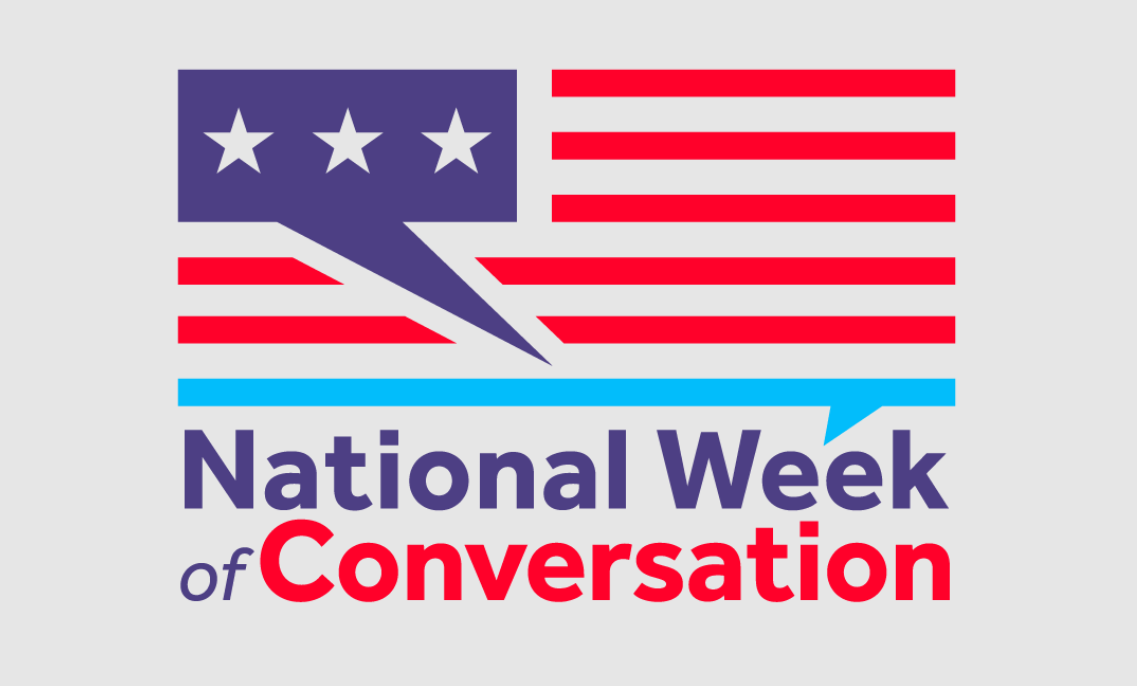

National Week of Conversation 2024: Voices as Practical Tools for Transformative Change
Everyone has had the experience of a powerful conversation—the feeling of recognition, of telling your story and feeling heard or feeling connected to someone who shares theirs. In these conversations, you might discuss stories and personal experiences, hopes and concerns—the context underlying your beliefs and opinions.
During this year’s National Week of Conversation, I’ve been reflecting on the growing community of people and organizations working to increase the reach and impact of conversations like these to reduce polarization and rebuild trust between communities, institutions, and leaders. Innovative approaches cover a wide range of methods, from citizens’ assemblies to film and music initiatives to new methods of civics education. One overarching theme I’ve noticed is an understanding of the unique power of the human voice as a tool for driving transformative change.
The main lesson I’ve learned from my time at Cortico is that the transformative change created by a powerful conversation is not limited to just its participants in the moment. Using our Fora platform and natural human meaning-making skills, we can intentionally design and gather, then organize and understand a collection of small-group conversations as a rich source of data for identifying solutions to thorny problems.
I have seen alternatives to the conventional paradigm that centers government as the opaque, bureaucratic decision-maker and positions residents as resentful or as obstacles to problem solving. For example, Boston’s Mayor Wu recently announced a $44 million investment in the transportation infrastructure on Blue Hill Avenue, one of the city’s busiest corridors. What makes this policy unique, though, is the years-long, block-by-block community engagement process that played a key role in this redesign. Boston’s Transportation Department (BTD) intentionally took a different approach to urban planning—one that “centered the expertise of those who live, work, or play along Blue HiIl Avenue,” a historically marginalized community– to build trust and legitimacy in the final plan.
While BTD gathered quantitative data through surveys and conducted technical analyses to inform the plan for Blue HIll Avenue, resident voices ultimately served as the plan’s centerpiece. Mayor Wu’s announcement of the plan on Instagram makes clear this link between community voices and practical policy. The voices highlighted in the announcement video come from a series of 23 Cortico-style conversations—recorded, small group sessions in which participants were asked to envision a future of Blue Hill Ave and share personal stories that influenced this vision. Rather than simply a summary or statistics, Mayor Wu transparently shared residents’ actual voices and ideas back to the affected community. This approach provides government leaders the opportunity to proactively show how they’re taking responsibility for designing solutions that address community members’ needs, hopes, and desires.
Across the country, we’re seeing the long-term effects of the accumulated sense that people don’t feel heard or understood by the leaders who are supposed to represent them. We see it in the news and the statistics: 25% of the country thinks our political system is working well, 28% express unfavorable views of both parties, and 25% do not feel well-represented by either party.
As Cortico’s CEO, Deb Roy, has said, “Hearing the humanity of others is essential for democracy to function.” Evoking the feeling of recognition, of being understood, is the key ingredient of great conversations and relationships. It’s not easy to reach this point; it can be a messy process that takes time, dedication, and care to build and maintain. That is precisely the point, though—there is no shortcut to rebuilding communities that listen, designing responsive policies, or re-establishing trust. But, by moving from a stance of confrontational face-off to one of standing shoulder to shoulder together, we can bring community members and government into a more productive conversation with one another.

By Ethan Walker, Manager of Government Programs & Partnerships, Cortico
